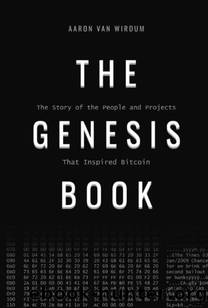The Genesis Book: The Story of the People and Projects That Inspired Bitcoin by Aaron van Wirdum

Author:Aaron van Wirdum [Wirdum, Aaron van]
Language: eng
Format: epub
Publisher: Bitcoin Magazine Books
Published: 2024-01-15T00:00:00+00:00
Backing Digital Cash
Throughout the next couple of yearsâthe mid-1990sâtopics like the nature of money, value, and currency backing would pop up on the Cypherpunks mailing list with some regularity. It made sense that Cypherpunks were discussing these issues; in order to create electronic cash, they had to understand what would actually give it value. Why would anyone give up real products or services in exchange for a number on a screen?
It turned out that various list members had very different ideas about this.
Some didnât really consider digital cash to have any value at all, and even thought that it was a bit of a misnomer to speak about it in monetary terms. Software developer Perry Metzger, one of the more active list contributors on topics related to digital cash, for example argued that something along the lines of âdigital anonymous bank draftsâ would actually be a more accurate description.
âJust as a check can be USED for money but is in fact a way of TRANSFERING [sic] money, so digicash isn't in and of itself the source of value â its [sic] a bookkeeping system for something that is,â he wrote. âThat something could be dollars, gold, cocaine futures contracts on the Bogota Commodity Exchange, girl scout cookies, or anything else people decide is a good medium of exchange.â[175]
Others, like Eric Hughes, didnât have an issue considering digital cash a form of money, but did agree that the bits and bytes had to be backed by something of value; in most cases a conventional fiat currency like the dollar or pound would be the obvious choice. He believed that for electronic currency to catch on, users would need a guarantee that theyâd be able to exchange their digital cash for a fixed amount of ârealâ money.
Yet another perspective came from Robert Hettinga, a Cypherpunk who (in his own words) used to work in âMorgan Stanleyâs cage in Chicago.â[176] As another very active participant in discussions about money and electronic cash on the Cypherpunk mailing list, Hettinga argued that the need for convertibility to ârealâ money would disappear over time, as people would slowly learn to trust the new digital currency.
Drawing an analogy from evolutionary biology, he wrote:
âRemember, proto-wings were evolved by pond-skimming insects so they could skim across ponds faster. Eventually, when those proto-wings evolved into actual wings, flying insects didnât need ponds anymore. With that idea in mind, digital bearer certificates are going to have to interface with the book entry world of meatspace for a while, in order to be [convertible] into other assets.â
But, Hettinga predicted: âEventually, at some point, those assets won't be book-entries anymore.â[177]
Tim May, meanwhile, didnât believe money needed to be backed in the first place. In line with Hayekâs freebanking far-sight, he argued that it ultimately all came down to future expectations: people just needed to have confidence that money would maintain its purchasing power.
âI believe _all_ forms of money, whether hard, fiat, whatever, come from the expectation that the money will be of the same value, more or less, in the future,â he wrote.
Download
This site does not store any files on its server. We only index and link to content provided by other sites. Please contact the content providers to delete copyright contents if any and email us, we'll remove relevant links or contents immediately.
International Integration of the Brazilian Economy by Elias C. Grivoyannis(111057)
The Radium Girls by Kate Moore(12028)
Turbulence by E. J. Noyes(8047)
Nudge - Improving Decisions about Health, Wealth, and Happiness by Thaler Sunstein(7706)
The Black Swan by Nassim Nicholas Taleb(7129)
Rich Dad Poor Dad by Robert T. Kiyosaki(6632)
Pioneering Portfolio Management by David F. Swensen(6300)
Man-made Catastrophes and Risk Information Concealment by Dmitry Chernov & Didier Sornette(6019)
Zero to One by Peter Thiel(5801)
Secrecy World by Jake Bernstein(4752)
Millionaire: The Philanderer, Gambler, and Duelist Who Invented Modern Finance by Janet Gleeson(4478)
The Age of Surveillance Capitalism by Shoshana Zuboff(4292)
Skin in the Game by Nassim Nicholas Taleb(4248)
The Money Culture by Michael Lewis(4207)
Bullshit Jobs by David Graeber(4190)
Skin in the Game: Hidden Asymmetries in Daily Life by Nassim Nicholas Taleb(4006)
The Dhandho Investor by Mohnish Pabrai(3764)
The Wisdom of Finance by Mihir Desai(3746)
Blockchain Basics by Daniel Drescher(3581)
